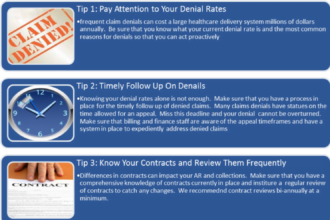Summary: People are telling us they are paying cash for common medical procedures, even if they’re insured — and getting lower prices. Is this common? Is it legal? Why don’t more people ask for lower cash rates, and why don’t more providers offer? Answers to these questions and more …
The situation, as described by two of our community members:
“I was told procedure would be 1850. I have a 7500 deductible. So I talked to the office mgr who said if I paid upfront and agreed not to report the procedure to Blue Cross, that it would be $580.”
On our Facebook page, one contributor wrote, “I was going to be billed $830 through my PPO for an MRI. The cash price? $500.”
An MRI: Sticker price $350, patient paid $300. “Cash price was $350, I negotiated down to $300 since my chiropractor refers patients to this facility often.”
Another MRI: Billed price $1,407; paid price $900. “Worked with billing for several weeks to work down price. Goes to show the price isn’t the price….”
This seems increasingly common among people who are insured using an in-network provider: if you ask, or sometimes even if you don’t ask, you’re offered a lower price. But it raises a whole list of questions.
“Most health care providers may be willing and able to offer cash discounts to patients who have no insurance or who choose not to have the provider bill their insurance carrier,” said David Harlow, a Boston-based health care attorney, who blogs at healthblawg. “There is a benefit to both parties: the patient — where the patient has a high-deductible plan and would be paying the full price out of the deductible — and the provider – who is happy to be paid, cash on the barrelhead, and not have to deal with submitting a bill to a third party payor and having that bill questioned and/or discounted.
“Many patients are prepared to pay cash for procedures in order to take advantage of significant discounts,” Harlow said.
He added that some contracts between providers and insurers may prohibit such practices. We have sought comment from insurers, but so far have not reached anyone. We’ll post an update here when we do.
People have learned that paying cash for prescriptions is often cheaper, especially for generics, even if you’re insured. We wrote a bit about this here on our prescription page. What we’re talking about that’s not so common is paying cash for medical procedures like an MRI.
The changing landscape of insurance and insurers
Many people think that because they’re insured, they’re getting the lowest price for a procedure. And even if they’re not paying for it, they think their insurance company is paying a low price, if not the lowest price. After all, that’s what insurance is for, right? There’s a “sticker” price that’s kind of like a manufacturer’s suggested retail price; but you can see on your bill and explanation of benefits that insurers never pay that price. Most of us think insurance gets you a lower price, as your insurance company negotiates the price down to a lower rate, often called a “member rate,” “negotiated rate,” “contract rate” or something similar?
And if the insurance company covers the whole thing, with little or no out of pocket for you, why ask for a lower price?
Well, not so fast.
With the skyrocketing number of high-deductible insurance plans, described by the IRS as anything with a deductible over $1,250 for an individual or $2,500 for a family, suddenly many individuals are responsible for costs before they satisfy their deductible, which could be as high as $6,350 for an individual or $12,700 for a family. Also, many more insurance policies have co-insurance — that’s what it’s called when you pay, say, 10 percent or 20 percent of the price. (A co-pay is usually a fixed price you pay for a visit, say $20 for an office visit.)
With those new high-deductible plans, some policies ask you to pay the sticker price before you meet your deductible, and some ask you to pay the contracted price. So the contracted rate of $830 for the MRI above became $500 at a cash rate — except it does not count against your deductible. If you’re using the cash rate, it’s as if you’re declaring yourself to be uninsured.
So it’s important that you know what your insurance plan says: are you paying the sticker price or contract price?
Here are some other questions.
Why would I want to do this?
To save money. The first person above saved almost $1,300 by paying cash. The second person saved $330. We heard from one woman who consistently tells her mammogram provider that she’s uninsured; she pays $200 annually in cash, instead of having two or three times that amount applied to her deductible and/or removed from her Health Savings Account.
Does this cash payment apply to my deductible?
Probably not. You should check with your plan documents to be sure, but if by paying cash you are effectively declaring yourself uninsured, there’s no reason for it to apply to your deductible. If you have a Health Savings Account, it probably doesn’t cover such cash transactions.
Is it legal?
Yes. An increasing number of providers are posting prices on line, or telling us of their cash or self-pay prices.
A few caveats: often there are conditions, such as “must pay in advance” or “must pay on day of service.” We’ve been surveying providers on their cash or self-pay prices for more than three years now, and we encounter very little pushback from providers who say they don’t have cash or self-pay prices. Some of these providers tell us they’ll give cash prices in advance to patients but not to journalists. In California alone, we have found numerous radiology clinics listing prices, as you can see towards the bottom of this blog post. Here’s a post about prices online in other states.
Also, the big retail chains that have set up clinics in their stores routinely post prices online. Here’s a pricing page from CVS and here’s one from Walgreen’s.
One big hospital chain, Hospital Corporation of America, posts prices online for self-insured patients but those patients must meet certain criteria. You can see some of their prices in this searchable database we have put together for big-ticket items.
O.K., but is it legal?
Nothing requires a patient to tell a provider that he or she has insurance and wants to use it, Harlow said — but, again, provider-payer agreements may ban such payments.
Harlow added: “In order to protect itself against potential lawsuits brought by insurers, a provider should only offer a cash discount if it bears a rational relationship to the actual administrative savings to the provider related to avoiding the entire insurance billing and collection process, plus the benefit of having that money in hand earlier. Also, cash discounts should be stated on bills provided to patients.”
Once the market included “most favored nation” clauses in payor contracts, requiring that insurers get the lowest price charged by a provider, which would suggest that a person paying a price lower than the insurer price would be on the wrong side of the contract (and so woudl the provider). But these are no longer common, Harlow said. Many states have banned them, and the U.S. Justice department has prosecuted cases of insurers enforcing this type of clause.
“If the contract doesn’t prohibit the offering of a cash discount or contain an MFN clause, then the field is clear for discounting, though there should be some rational basis for the amount of the discount,” he said.
Are there regulations about this?
There is a long history of regulation and legal maneuvering in this marketplace regarding illegal discounts, kickbacks and so on. Our friends over at Wellero, an app for payments that is part of the Cambia Health network, wrote a white paper about prompt pay discounts. It says, among other things, that out-of-pocket expenditures for patients are rising, and providers are having a hard time collecting. Hence, Wellero.
Their white paper quotes a document from the Department of Health and Human Services Office of the Inspector General detailing rules for prompt payment discounts: be consistent, post prices, have written policies, offer “the same discount to all patients, insured or not” and agree not to advertise such discounts. The OIG advisory letter from 2008 is here; it refers to an even more detailed 1991 document about payments, anti-kickback regulations and the like from the OIG dated 1991.
How do insurers think about this? Is it allowed under the provider’s insurance contract? Under your insurance contract?
It’s generally in the insurer’s interest to keep you in network and on the books. But truly, if you’re paying insurance premiums and not making any claims — not askign them to pay anything — then it’s a win for them, right?
We’re trying to find someone from the insurance industry to comment on this.
We have heard anecdotally that sometimes the patient pays on cash, then tries to submit the bill for reimbursement. It’s not clear to us how often this happens, but it does happen, and insurers don’t like it. Imagine the conversation: “You were going to pay $1,850, but i negotiated a better rate: $580. Now I’d like to apply that to my deductible.”
We have also seen insurance companies starting to offer transparency tools like this one that I blogged about earlier this year. You will note that this is partial transparency: the payer is only telling part of the story.
How do I go about getting a low cash price?
It’s easier to do before the procedure. Ask: how much will this cost? How much will it cost me? Do you have a prompt-pay discount? Do you have a discount for paying in advance? A discount for AAA members? (This is only partly a joke). Take notes. Take names. Take numbers.
Also, if it’s important to you, you should ask if the money you pay can be applied to your deductible, or to your HSA.
What if I found out after I paid that I could have gotten a lower price by paying cash up front?
It’s much harder to make this happen after the fact. You can always ask the billing office if they’ll give you a refund. We have not heard anybody who got one, but you could ask. Please let us know what happens.
Remember, if you’re venturing into this territory: Be polite. Billing office and insurance office workers are people too. We are all in this together, and they are not the villains. It’s the system that’s the villain.
Finally, if you have a story to tell, tell it here: info (at) clearhealthcosts (dot) com.








